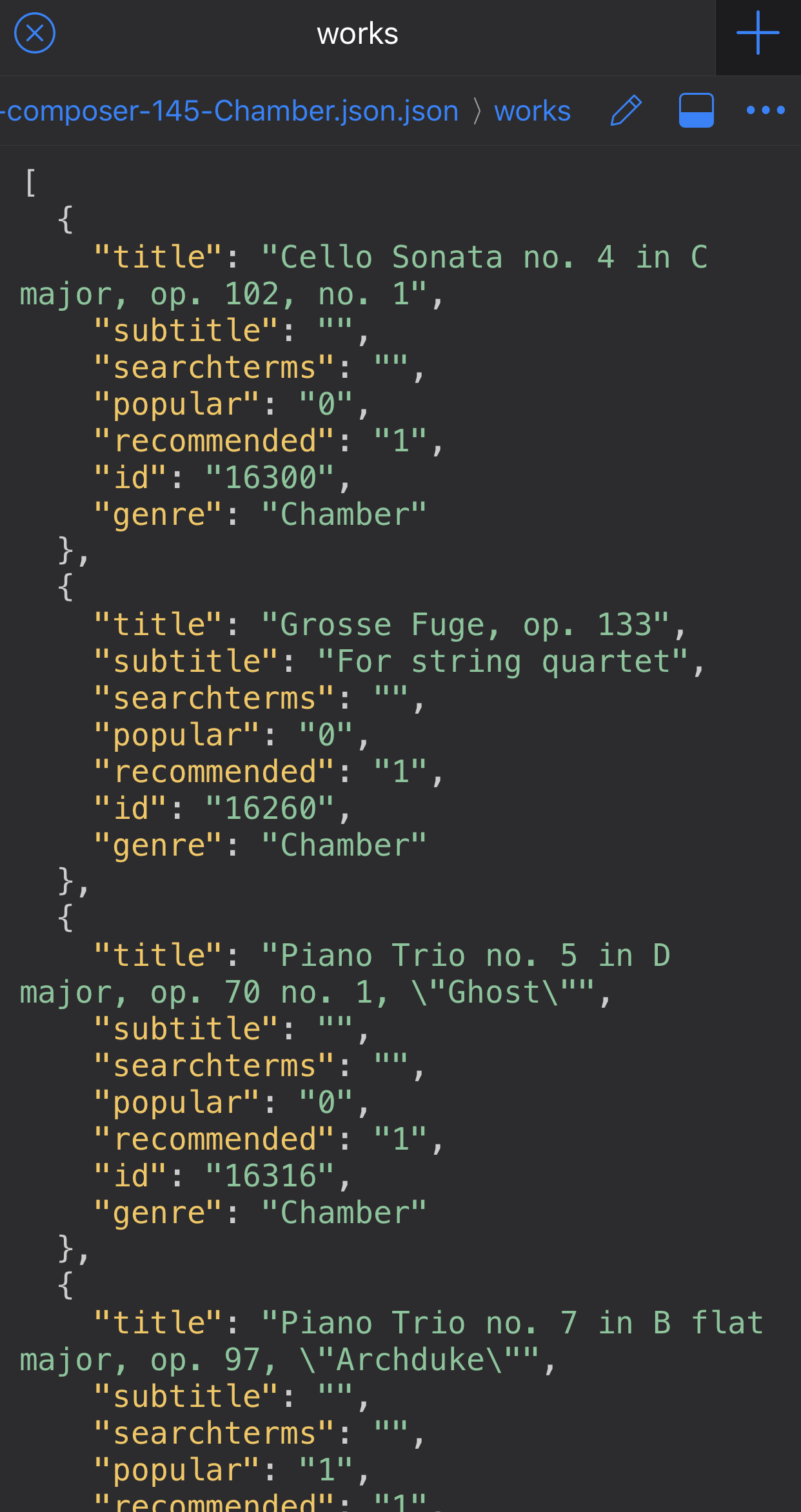
Free, open metadata for classical music
Complete and accurate information about composers and works, ready and easy to use. Open Opus is a free and open source API to all classical music metadata your application needs.

Music metadata is not a new thing, and there are truly incredible projects out there. But most music databases were created with pop music in mind and they aren't suited to classical music at all. Open Opus is a free, open sourced, collaborative database designed for classical music. 200+ composers and their complete works, fully categorized and easily available through a flexible web API. Music streaming, content, retail... if your app needs to deal with classical music, Open Opus can help you.
Composers, genres, works, performers and everything you need - without overwhelming
The Open Opus API is not only free, but open. Everybody can fork it or contribute with code to the project. And all data is in the public domain as well. Just download it!
All Open Opus data can be freely edited by anyone who wants to help the project, in a wiki-style web-based tool.
Composers belong to periods. Works belong to genres. Works have names and optional, supplementary descriptions. That's all.
Work names follow a no-nonsense style guide. And there are popular and recommended lists of both composers and works, to make life easier for everybody.
The Open Opus API uses the most direct REST calls possible for content retrieving and editing and requires no registration at all. Cheers!
The Open Opus API has been used by production-level, real-life applications since its creation.
Free to use, available now
No registration needed. Just read the docs and you're set to go!
Open Opus is a completely free and open project based on our love for classical music. You can help us in several ways: donating money for our server costs; editing and adding data; and, if you are a software developer, contributing with code.
Open Opus is free to use but it runs on web servers that cost us money. You can help us by supporting us on Patreon - any amount is more than welcome! $5+ supporters get access to an exclusive Discord server to chat about future features.
Open Opus is more than software and data - it's know-how. If you're a classical music aficionado or scholar, you can help us by bringing your knowledge to our project.

The Open Opus API is open source software. This means that you can not only see how it was made but contribute yourself with code! Bug fixes and new features implementation are always needed. And, of course, you can fork our code and create your own API - why not?
Open Opus is all about open, collaborative data. You can review existing info on composers, works and performers or add new entries to our database - any help will be appreciated!
Not for now. Open Opus was designed to deal with composers, works and performers metadata. Apps which use the Open Opus API, like Concertmaster, retrieve recordings info from services such as Spotify.
We had to choose a limited set of composers to start the project, but everybody is more than welcome to add composers and works to the database. In the meanwhile, we keep improving the platform and inserting more data ourselves.
Yes! All Open Opus data is in the public domain and can be freely used. You can download the full dataset in JSON format.
The Open Opus database started with lists automatically scraped from sources like Wikipedia and IMSLP. We're standardizing them little by little. You can help us in this task!
Yes, we know. Open Opus was born very simple and concise, but it'll grow and become more complete. We're planning several new features. And you can help us! The Open Opus API is open source software and you're welcome to fork it or contribute with code!
It's still in the works and it'll be released soon :)